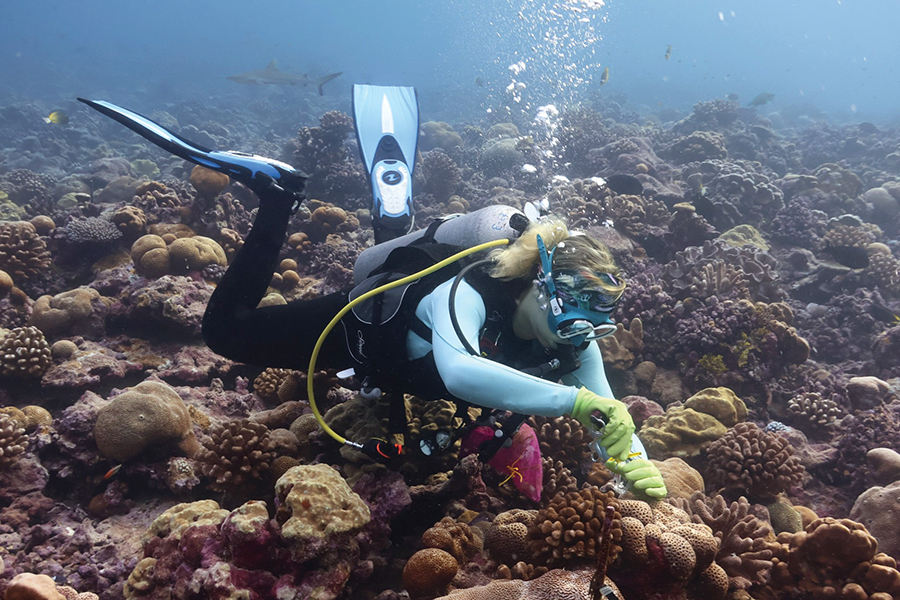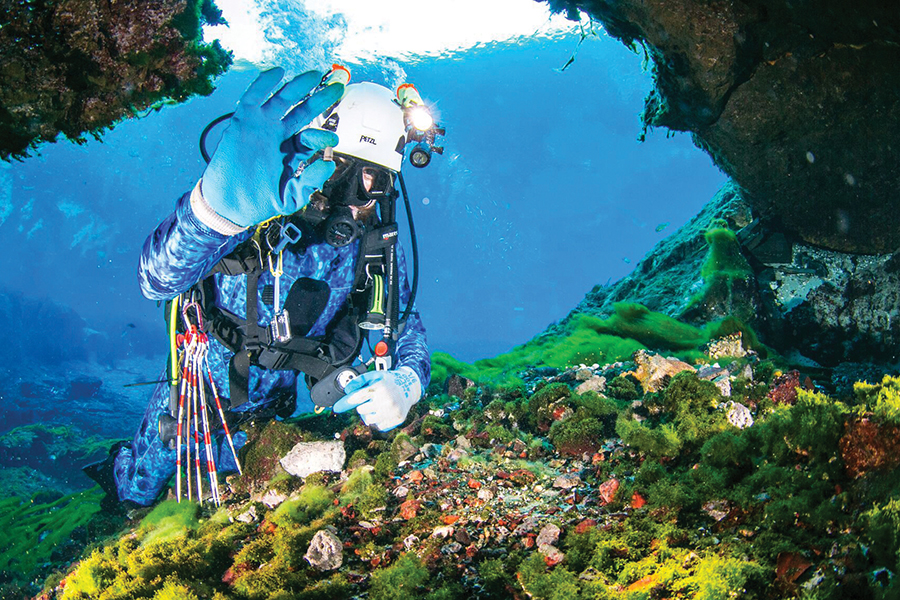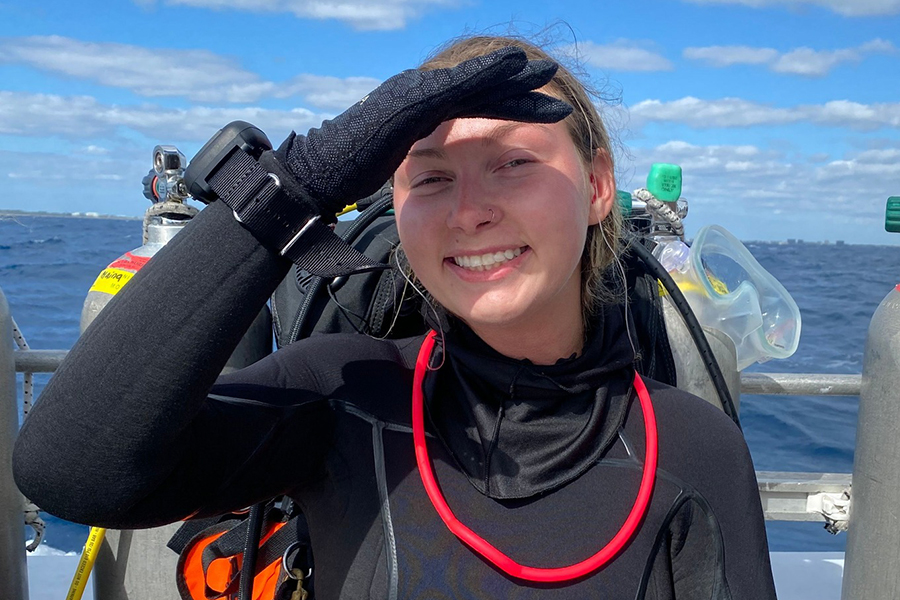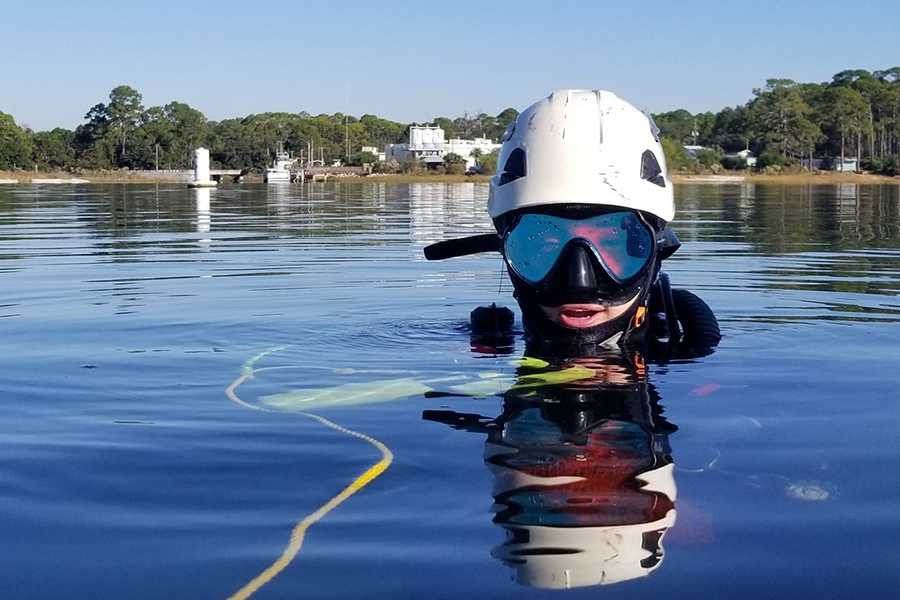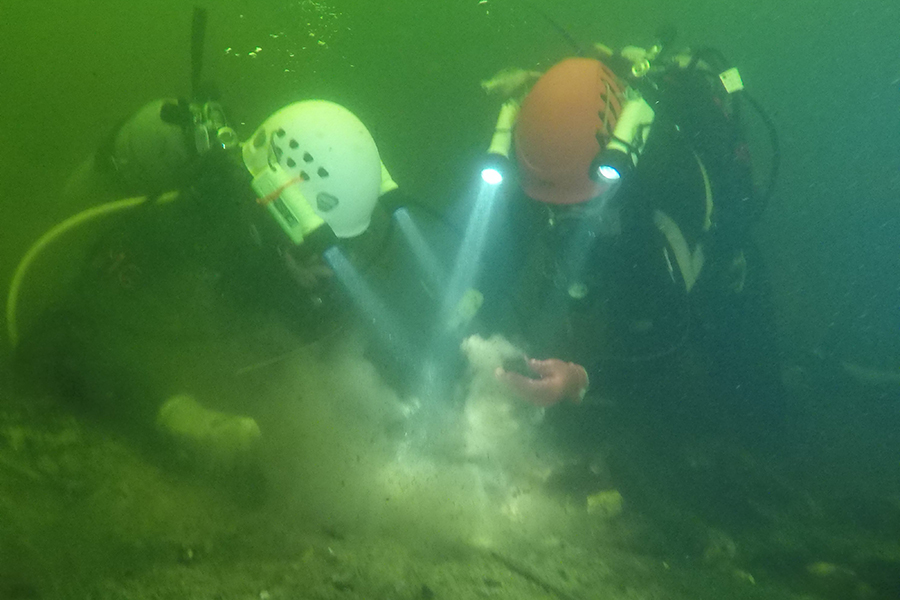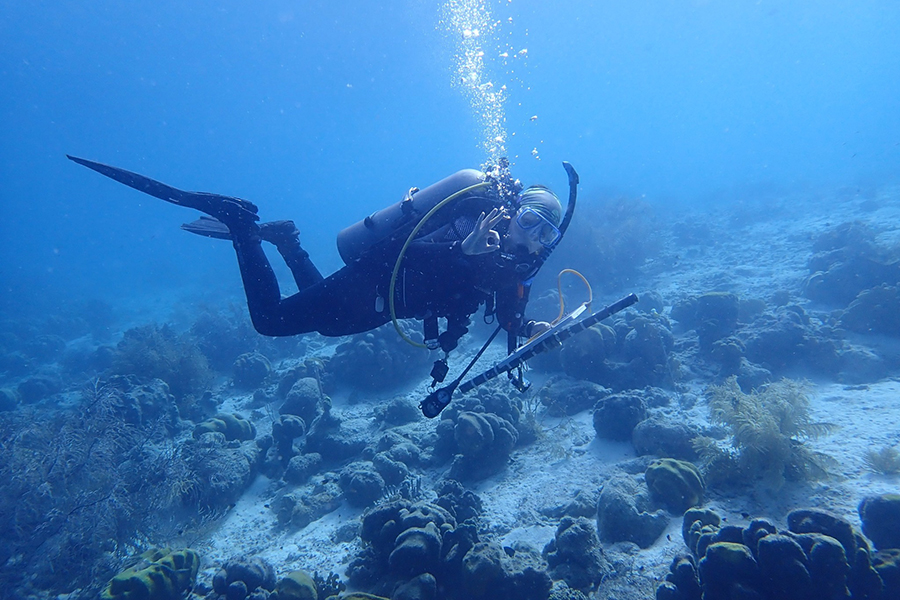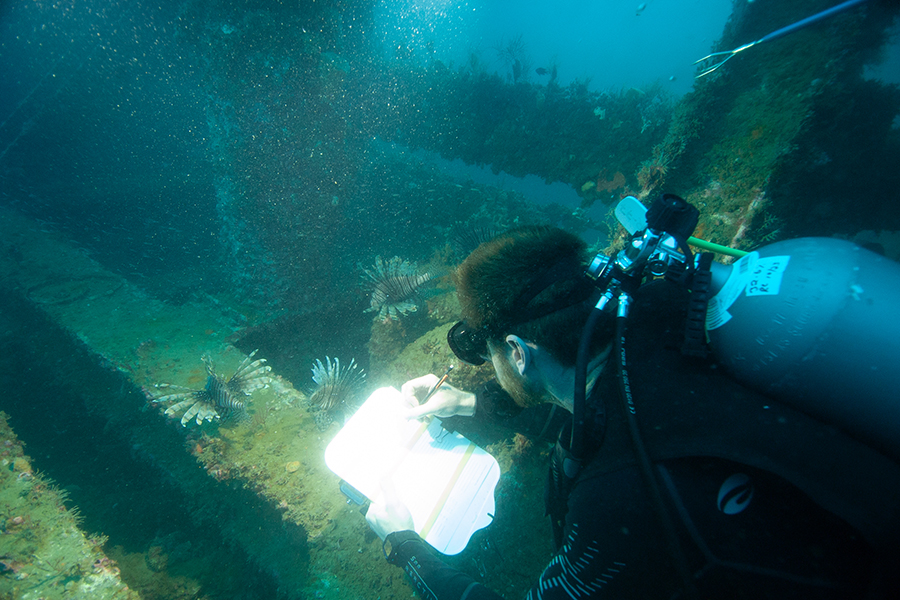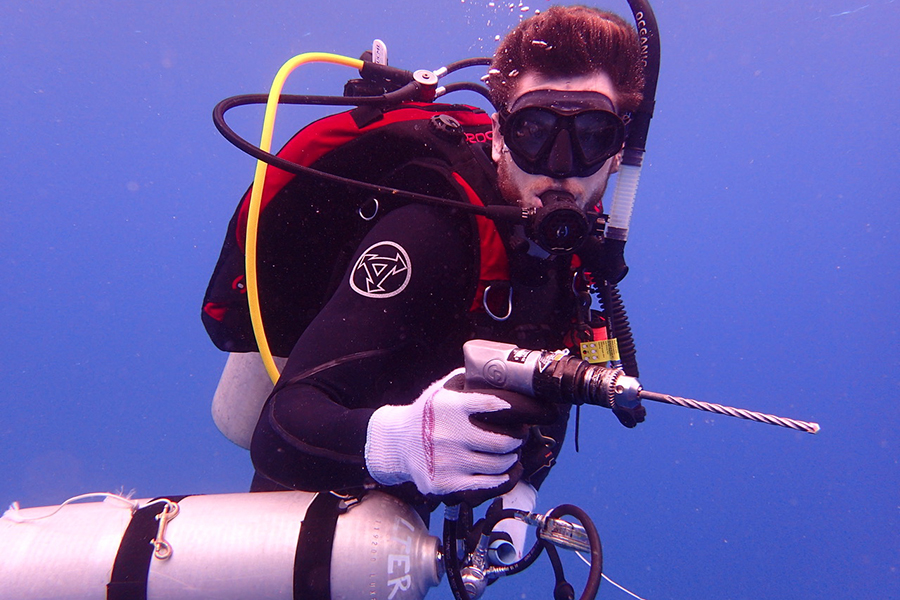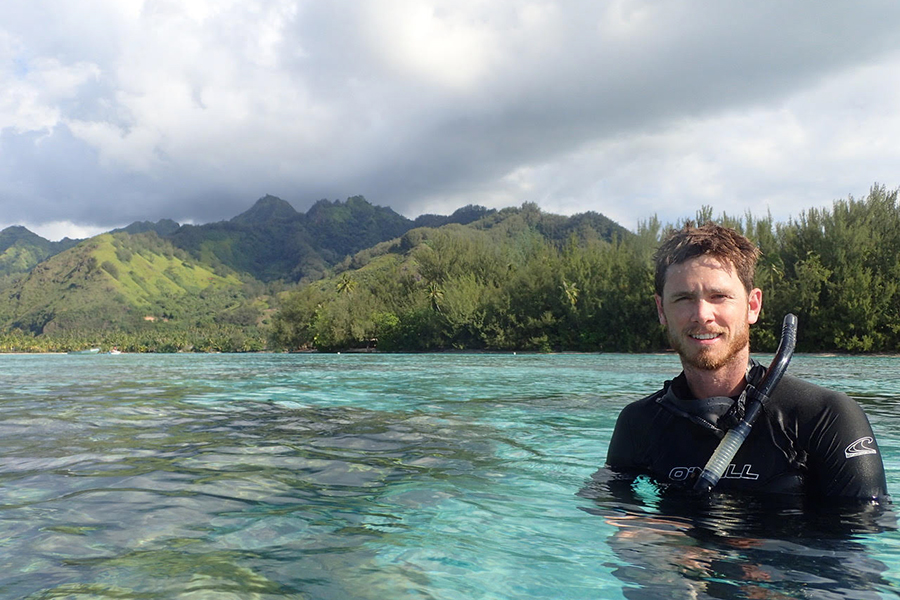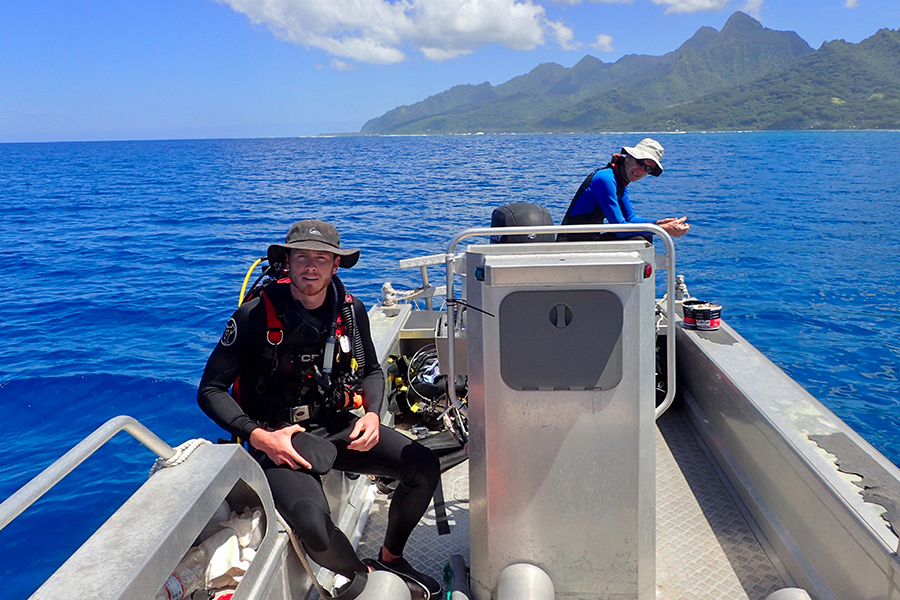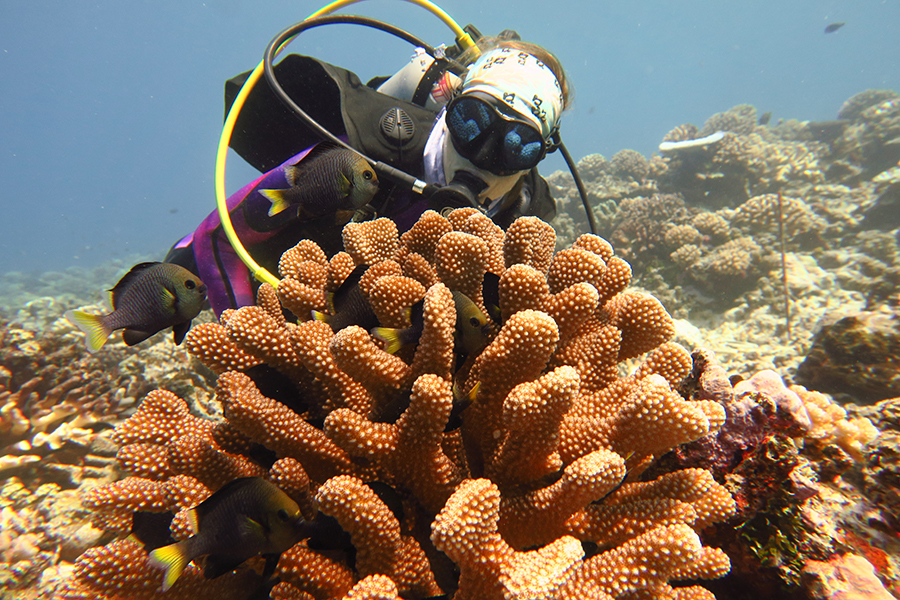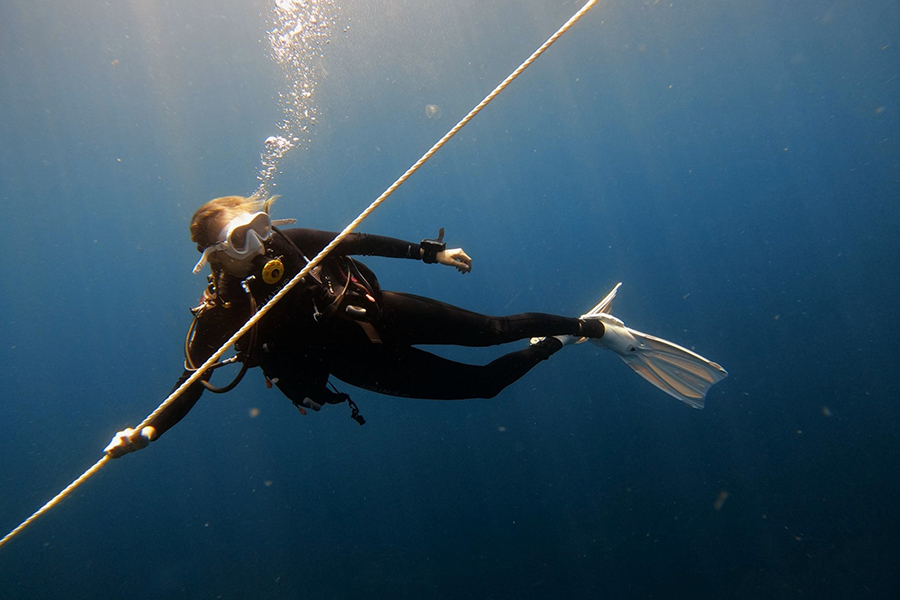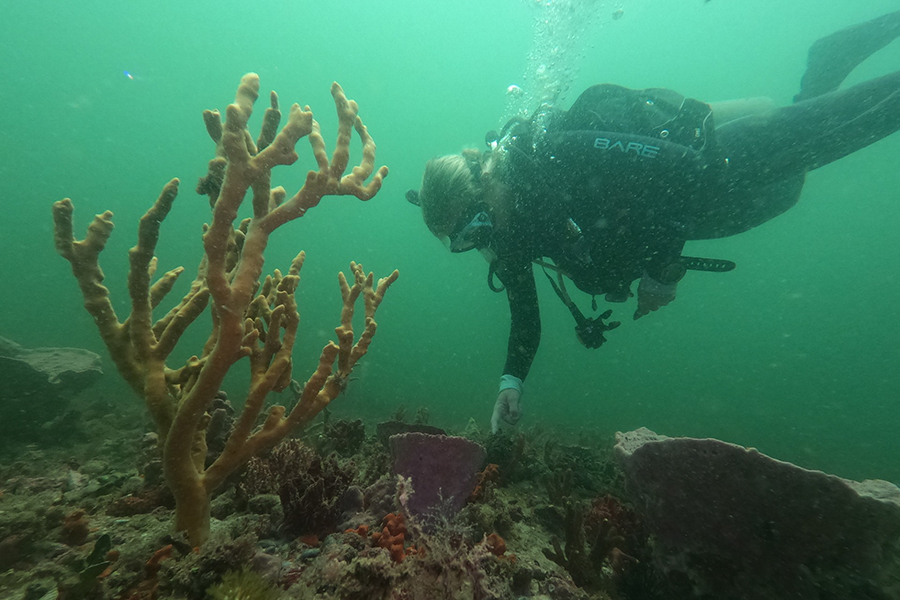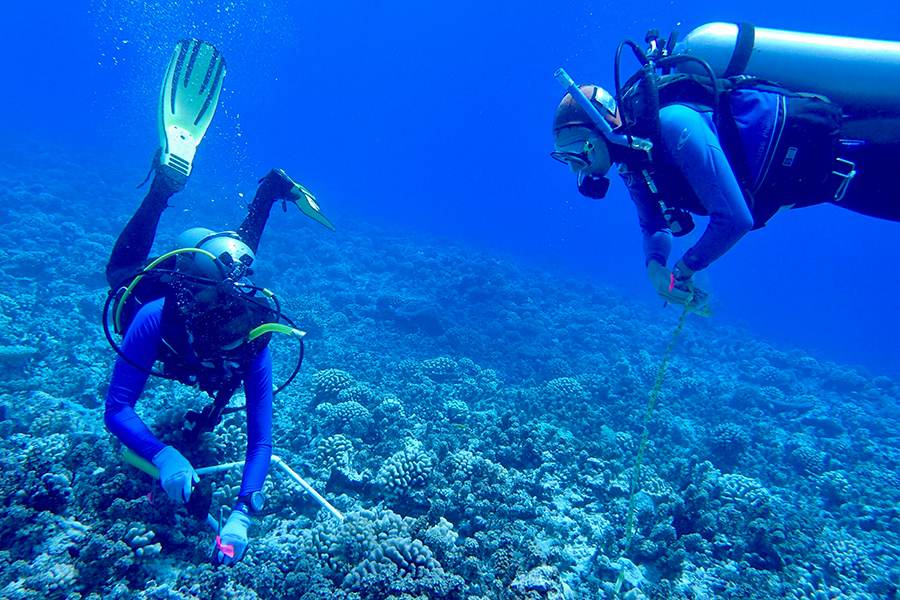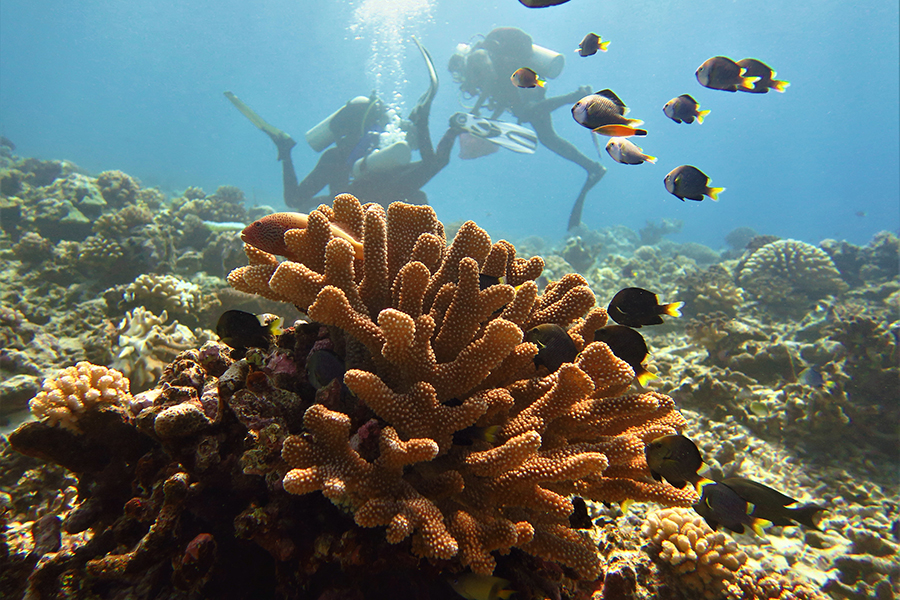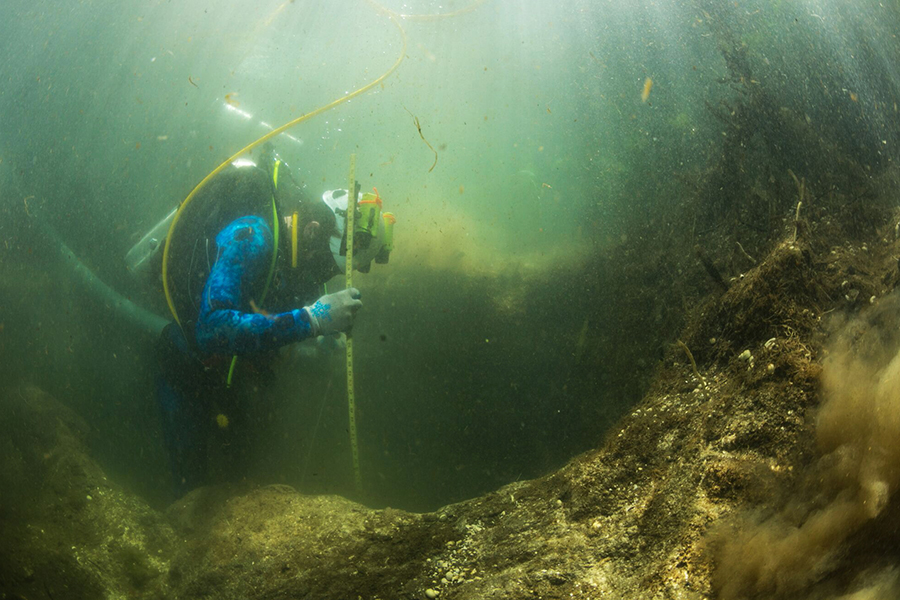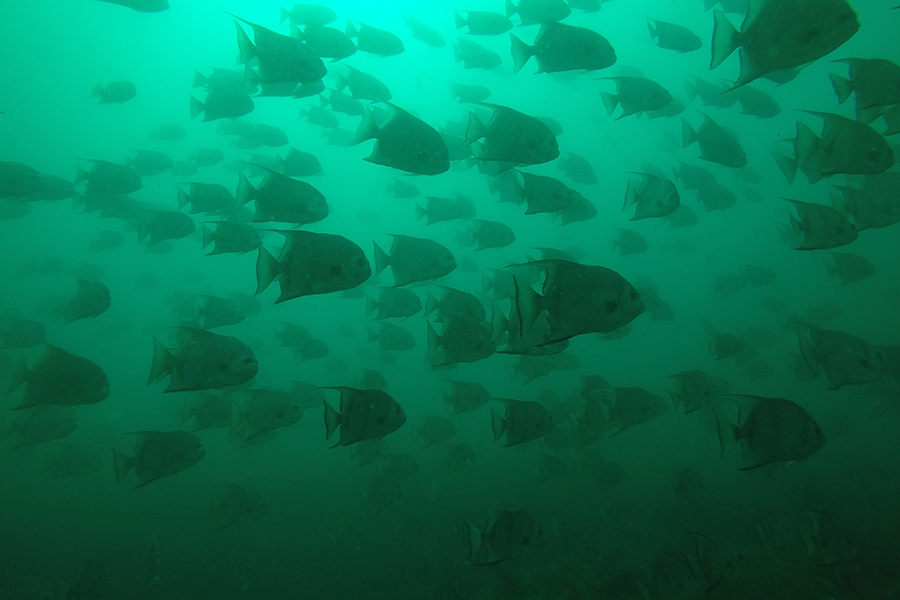Under the Surface
Florida State’s Academic Diving Program celebrates 50 years of underwater research

On a boat bobbing on the gentle swells in the South Pacific Ocean, a pair of scuba divers is completing their pre-dive checklist: buoyancy control, check; weights, check; releases and air, check. After giving each other a final “okay” sign, they're over the side and into the watery depths.
Despite the picturesque locale, these are not tourists and this is not a recreational dive — these divers are among the generations of Florida State University students who have been trained to conduct scientific research in waters around the world.
The FSU Academic Diving Program was founded in 1975 to support underwater research activities by students, faculty, and staff in university units including the Department of Biological Science, the Department of Anthropology, the Department of Geography, and the Department of Earth, Ocean and Atmospheric Science. Over the past five decades, hundreds of divers have learned scientific diving protocol through ADP, which is stationed at the FSU Coastal and Marine Laboratory in St. Teresa, Florida.
“We train divers to dive professionally and scientifically,” said Chris Peters, ADP’s diving safety officer and an alumnus of both the program and FSU’s Geographic Information Science program. “We provide logistical support in executing scientific diving objectives.”
One of the program’s founders, Gregg Stanton, a then-research assistant pursuing a master’s degree in biological science, conceived ADP to prepare scientists to conduct research that can only be done in and under water, such as collecting sediment samples and surveying reefs. During his 29-year tenure as diving safety officer, Stanton established an affiliation with the American Academy of Underwater Sciences, which still guides ADP’s training standards.
Scientific diving applicants are evaluated by a subcommittee of FSUCML’s Diving Control Board, which determines aptitude based on scientific need and qualifications for entry, including open water diver certification. Admitted applicants then take the AAUS-compliant Introduction to Scientific Diving course taught at the Morcom Aquatics Center and in the Gulf near FSUCML by Peters, who is also an AAUS member, a PADI Master Scuba Diver Trainer, and an Emergency First Response Instructor.
For many, the introductory course is crucial for fieldwork pertinent to degree programs. For seasoned recreational divers, the class opens new possibilities in scientific diving.
“I was introduced to ADP when visiting FSUCML for an experimental marine biology course with Professor Don Levitan during undergrad,” said Adin Domen, a master’s student in biological science and teaching assistant for Introduction to Scientific Diving. “I applied for the introductory course in preparation for joining the U.S. Coast Guard as a military diver after graduation. Through that class, I became fascinated by underwater research and pivoted to a career in marine biology.”
Scientific diving is imperative to Domen’s current marine ecology research. Since completing the introductory course three years ago, he has worked as a technician and research assistant for FSUCML research faculty Sandra Brooke, performing artificial reef deployments to restore oyster habitats in Apalachicola Bay.
While ADP attracts current FSU students, its preeminence is also a pull for new university applicants. Taylor Conklin, a chemical oceanography master’s student, applied to FSU for graduate study with the goal of participating in ADP. Conklin now works in the Tropical Paleoclimate Dynamics Group led by assistant professor of oceanography and meteorology Alyssa Atwood, conducting underwater research by diving off the coast of Kiritimati Island in the Pacific Ocean, about 100 miles north of the equator and 5,000 miles from Florida, to collect coral samples used to study the region’s climate history.
“My ADP training has been instrumental in conducting fieldwork safely and effectively,” Conklin said. “In the tropical Pacific, I drill cores from living corals. To do this properly, I must stay steady underwater no matter the strength of currents. ADP made diving second-nature, allowing me to focus on the science.”
As part of overseeing the program, FSUCML also provides ADP with boats, scuba tanks and diving gear. Joel Trexler, FSUCML director and FSU biological science alumnus, considers this partnership a crucial synergy for marine research at the university.
“FSUCML is dedicated to stewardship of the marine environment, and ADP is crucial to our mission,” Trexler said. “Scientific diving is fundamental to the lab’s activities. ADP staff conduct important research for the university and engage in industrial diving activities that maintain the marine lab.”
On the horizon, ADP and FSUCML hope to make scientific diving more accessible to through the formation of two scholarships. The FSUCML Scientific Diving Scholarship and FSUCML Leadership Diving Scholarship aim to reduce financial barriers preventing students from pursuing training and leadership opportunities.
“Our scholarships have helped cover the cost of training for many students in recent years,” Peters said. “Incredible students participate in this program, and we want to help them succeed in their fields.”
Devin Bittner is a two-time FSU alumna who earned a Master of Business Administration in 2022 and a bachelor’s in digital media production in 2019.


